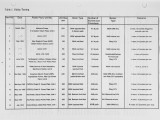| Abstract |
Over the years, studying combustion in utility and industrial boilers, we discovered that temporal fluctuations of conventional measurements, such as flame radiation and flue gas constituents, which are often filtered out as useless noise, are sensitive to changes in combustion conditions. We suggested that these fluctuations might be correlated with important parameters of combustion process, such as fuel-to-air ratio, NOx emissions and flame stability for individual burners, and could be developed into a powerful diagnostic tool to characterize the efficiency and emissions of combustion process. In order to validate this suggestion, we have undertaken a significant experimental program which included testing at utility boilers and single-burner research facilities. In the course of this project, we collected and analyzed a large amount of experimental flame data, developed new frequency-based algorithms for characterizing and optimizing the performance of coal-fired burners. Our analysis of experimental data has demonstrated the feasibility of the proposed concept: it confirmed that statistical values extracted from temporal frequency flame spectra can be correlated with flame parameters and can be developed into effective algorithms for combustion diagnostics and optimization, particularly for coal-fired 10w-NOx burners. Our approach to analysis of temporal flame frequency spectra exploits the correlation between characteristics of individual burner flames and statistical values derived from the spectra. On this basis, we developed a method of forming optimum algorithms to characterize specific parameters, such as NOx and burner fuel-to-air ratio. We believe that our approach leads to a new method of combustion optimization which can be applied to almost all combustion sources, including utilities and industrial boilers. It will allow to optimize operation of individual burners, increase the overall combustion efficiency and reduce NOx emissions. This paper presents main results and conclusions of this project. |

















